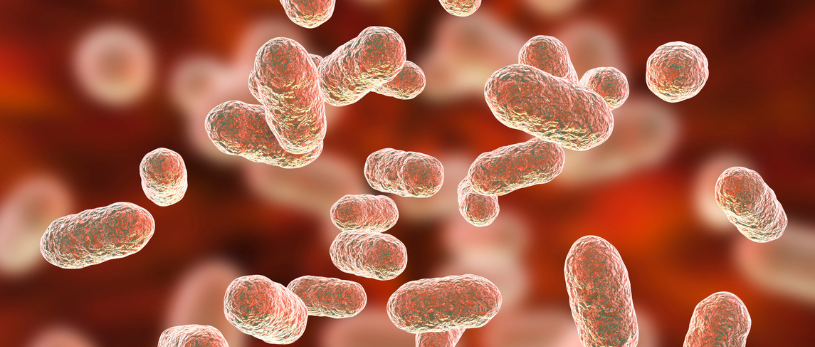In recent years, it has been revealed that the human microbiome plays an essential role in critical areas of health, including fertility. Both the vaginal microbiome in women and the gut microbiome in both genders can influence the success of conception and overall reproductive health. Why is it so important to care for this ecosystem, and how can you achieve a balance that optimizes your chances of pregnancy?
What is the Microbiome and How Does It Affect Fertility?
The microbiome is the collection of microorganisms (mainly bacteria) that inhabit different parts of the body, such as the gut and reproductive organs. These “good” bacteria help in fundamental processes: from digestion and nutrient absorption to regulating immunity and inflammation, which are key aspects of healthy reproduction.

A balanced microbiome in the gut and reproductive system is associated with better reproductive health, as it can influence egg quality, sperm motility, and uterine receptivity—all critical factors for conceiving naturally or through assisted reproductive techniques.
The Vaginal Microbiome and Its Impact on Female Fertility
The vaginal microbiome, one of the most sensitive areas of the human microbiome, plays a fundamental protective role in female reproductive health. In a healthy woman, the vaginal flora is dominated by bacteria from the Lactobacillus genus, which produce lactic acid and maintain an acidic environment that protects against infections. This balance is not only crucial for preventing infections but also creates an optimal environment for fertilization and embryo implantation.
Imbalances in the Vaginal Microbiome and Fertility
When the vaginal microbiome loses its balance, a condition called dysbiosis can occur, increasing the risk of infections such as bacterial vaginosis. These infections, besides causing discomfort, can reduce fertility by triggering an immune response in the body that is hostile to sperm. This can complicate conception both naturally and in fertility treatments.
An imbalanced vaginal microbiome can also affect the success of embryo implantation and increase the risk of complications during pregnancy, highlighting the importance of maintaining a healthy microbiota when trying to conceive.
The Influence of the Gut Microbiome on Fertility
The gut microbiome impacts reproductive health in both men and women. Gut bacteria contribute to the digestion and absorption of essential nutrients for reproduction, such as zinc, iron, folate, and B vitamins. Additionally, the gut microbiome participates in hormonal regulation, including hormones important for fertility like estrogen and cortisol.
Gut Dysbiosis and Its Relationship with Reproductive Health
When the gut microbiome is unbalanced, a state of chronic inflammation can develop, negatively affecting fertility. Persistent inflammation impacts egg and sperm quality and disrupts hormone levels. In women, gut dysbiosis is associated with conditions like polycystic ovary syndrome (PCOS), one of the leading causes of infertility. In men, dysbiosis can reduce sperm concentration and motility, directly affecting fertilization capability.
Strategies to Maintain a Healthy Microbiome and Improve Fertility
Promoting a balanced microbiome can significantly contribute to improving conception chances, both naturally and through assisted reproductive techniques. Here are some practical tips:
- Fiber-Rich Diet and Fermented Foods: Eating fiber-rich foods like fruits, vegetables, whole grains, and legumes supports the growth of beneficial bacteria in the gut. Additionally, fermented foods such as yogurt, kefir, and sauerkraut provide natural probiotics that enhance microbiome diversity.
- Avoid Excessive Antibiotic Use: While sometimes necessary, antibiotics can harm healthy bacteria. If you’ve had to use them, consult a professional on how to restore your microbiome.
- Probiotics and Prebiotics: Probiotics are live bacteria that help restore microbiome balance, while prebiotics (dietary fibers) nourish these bacteria. Ask your specialist about the most suitable supplements for your situation.
- Good Hygiene and Natural Products: For the vaginal microbiome, avoiding harsh products and choosing natural hygiene options helps maintain bacterial balance.
- Reduce Stress: Chronic stress affects the microbiome in both the gut and reproductive systems. Practices like yoga, meditation, or simply walking outdoors can improve overall health and fertility.
- Moderate Exercise: Regular physical activity at moderate levels benefits both the gut microbiome and overall reproductive health.

The microbiome is fundamental to reproductive health in both men and women. Maintaining this ecosystem’s balance helps regulate hormone levels, reduce inflammation, and create a favorable environment for fertilization and implantation. If you’re looking to improve your fertility, caring for your microbiome can be a key strategy.
At Gravida, we understand the importance of a holistic approach to fertility. If you need guidance on how to enhance your reproductive health, our team is here to support you every step of the way.
📞 Call us at 93 206 64 89
✉️ Email us at internacional@gravidabcn.com
🖊️ Fill out the contact form here
You’ll find us at:
Hospital de Barcelona (16th floor)
Av. Diagonal 660
08034 Barcelona



